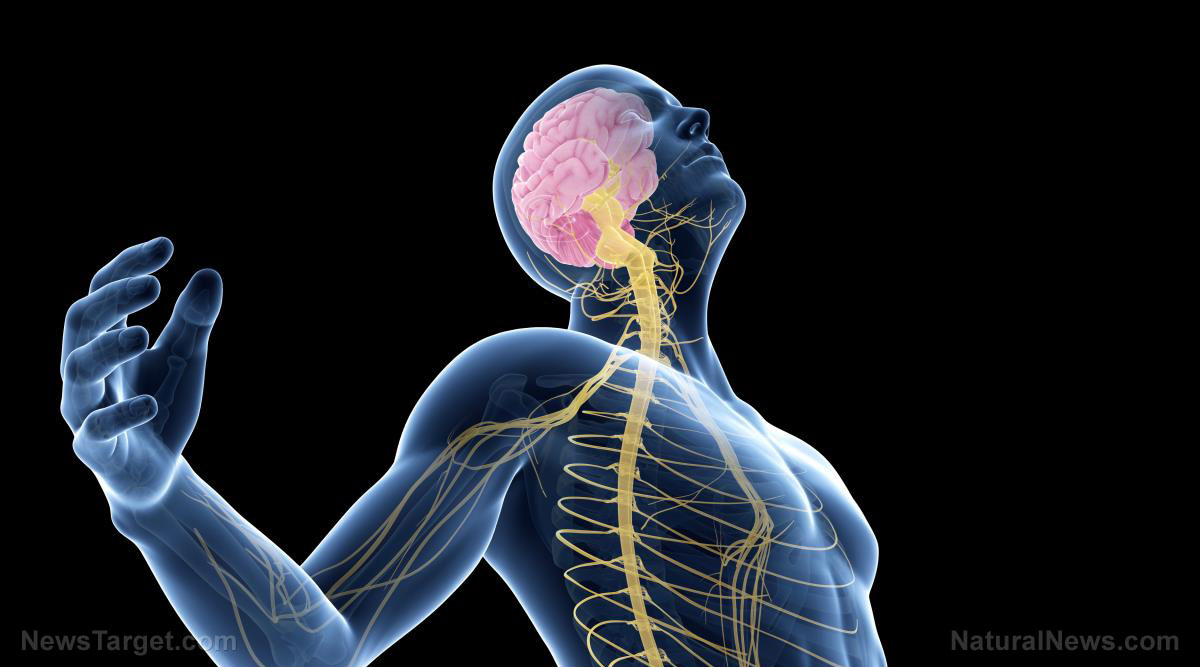Excessive calcium in your cells may increase your risk of developing Parkinson’s
03/13/2018 / By Jessica Dolores

Michael J. Fox, Muhammad Ali, Charles M. Schulz, Linda Ronstadt and Billy Graham have one thing in common. They have Parkinson’s disease.
The disorder also afflicts one of every 350 adults in the U.K., or an estimated 145,000 people. The sad part is, the solution to Parkinson’s remains elusive.
The neurodegenerative disease causes a decline in a person’s motor function due to the loss of brain cells that create dopamine, which transmits signals between the brain’s nerve cells (neurons). People with Parkinson’s disease can’t control their movements. This is why they tremble and are slower than others. They lose their balance and experience stiffness.
A host of factors, including family history and environment (e.g. exposure to harmful chemicals) also cause the disease.
A recent study by an international team headed by researchers at the University of Cambridge discovered that an oversupply of calcium in the brain may result in harmful clusters that cause the disease.
Given the right dosage, calcium helps a person stay healthy. The mineral strengthens and bones and the teeth. Calcium also helps in blood clotting, cell signaling, nerve functions and muscle contraction. Calcium also keeps our hearts beating regularly.
But too much of a good thing is harmful. Researchers found that when calcium levels in the nerve cells increase, alpha-synuclein, the protein associated with Parkinson’s disease, binds to synaptic vesicles and causes them to bind together.
Dr Amberley Stephens., who co-authored the study, explains that too much calcium and/or alpha-synuclein can lead to Parkinson’s disease.
100% organic essential oil sets now available for your home and personal care, including Rosemary, Oregano, Eucalyptus, Tea Tree, Clary Sage and more, all 100% organic and laboratory tested for safety. A multitude of uses, from stress reduction to topical first aid. See the complete listing here, and help support this news site.
Studying cells
Thanks to highly-sensitive microscopes, the team of researchers were able to examine the inside of cells and study the interaction between alpha-synuclein and synaptic vessels.
As a result, Dr. Janin Lautenschläger was able to compare alpha-synuclein to a calcium sensor. She observed that the presence of calcium in the alpha-synuclein changes the protein and the way it responds to its surroundings.
This, she added, is “very important for its normal function.”
Do’s and don’ts
As in any disease, prevention is the best cure. A healthy diet is the key to avoiding Parkinson’s. Processed foods, artificial sweeteners, allergy-causing food like gluten, dairy, shellfish and peanuts must be avoided. Alcohol can disturb neurologic functions and cause mood changes.
Healthy eating is the key. Patients should consume lots of fresh fruit and vegetables. It’s important for Parkinson’s patients to eat whole foods and a nutritious diet with lots of fresh organic fruit, vegetables and meat of good quality. (Related: The Mediterranean Diet Healthy Eating Plan.)
Foods with high-fiber content fight constipation, which many Parkinson’s patients suffer from. Drinking lots of water also aids in bowel movement.
Wild-caught fish, avocado, coconut, pastured butter, and sprouted nuts or seeds like walnuts and flax boost neurologic health and keep moods from getting worse.
Food rich in omega-3, like wild seafood, nuts and seeds boost dopamine levels and fight inflammation.
Fresh vegetable juice are sources of vitamins and minerals. It also hydrates the body and keeps constipation at bay.
Drinking green tea thrice a day is also good practice. Green tea has polyphenol antioxidants that help protect the body from free radicals. It has theanine, which raises brain dopamine levels in the brain.
Olive oil on salad dressing has the antioxidant vitamin E. Coconut and palm oil reduce inflammation.
See Prevention.news for more coverage of disease prevention strategies.
Sources include:
Tagged Under: brain health, calcium, excessive calcium, healthy diet, healthy living, nerves, neurological disorders, Parkinsons, prevention




















